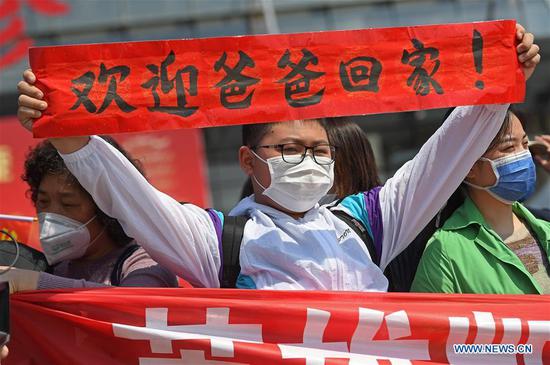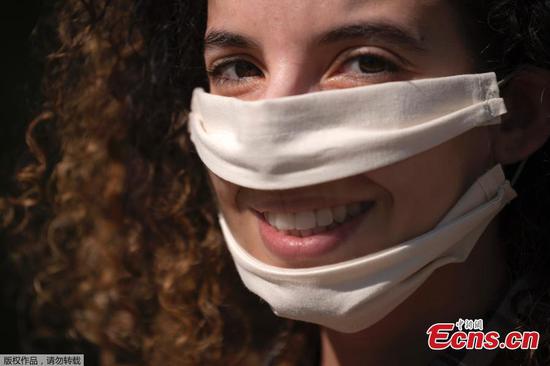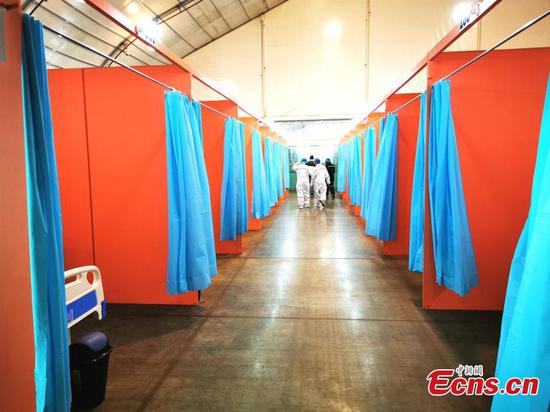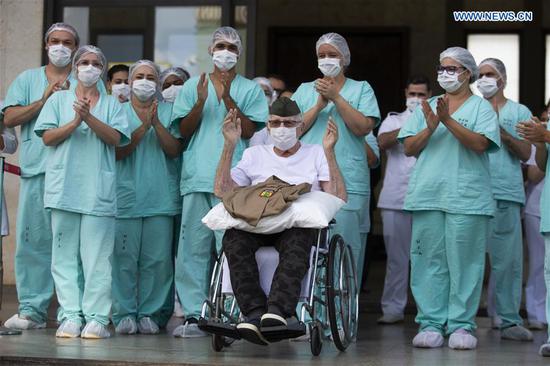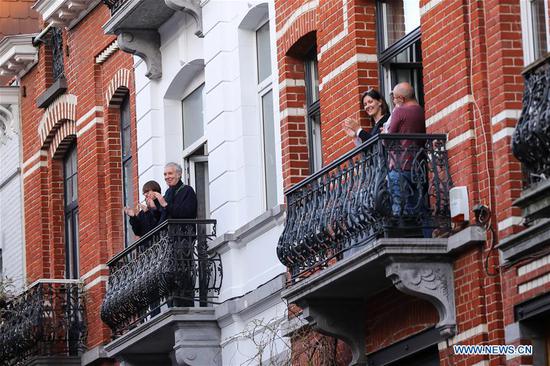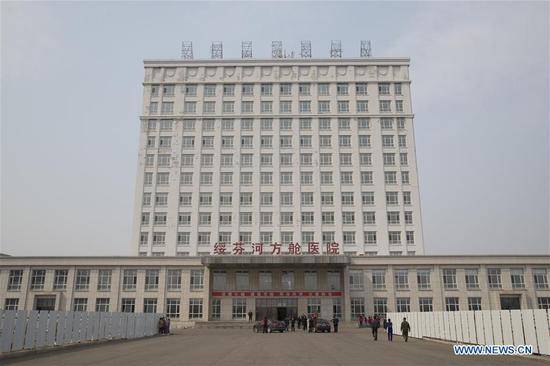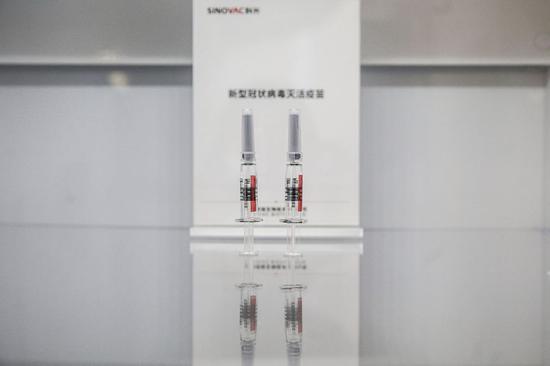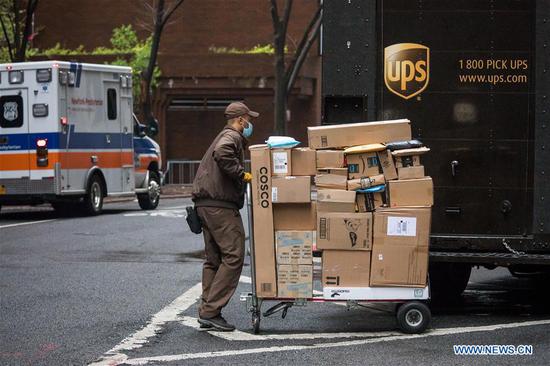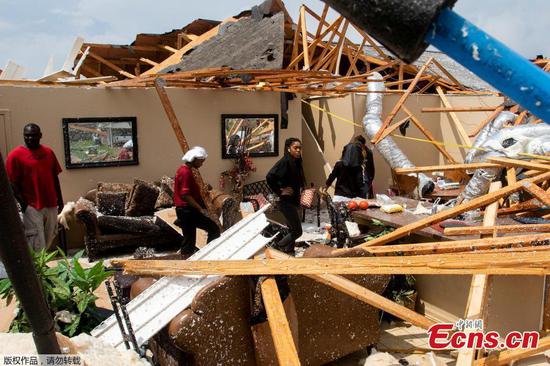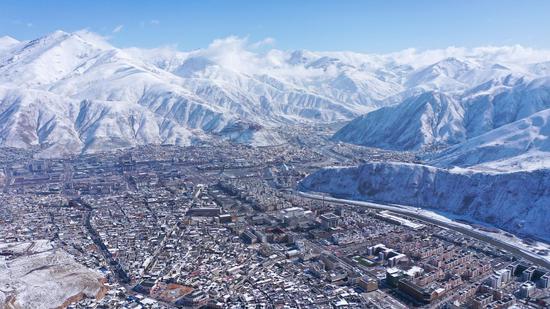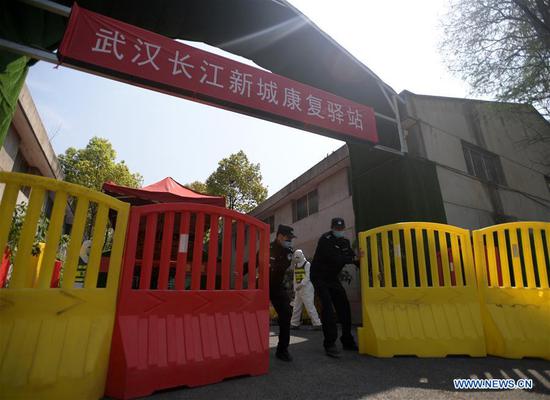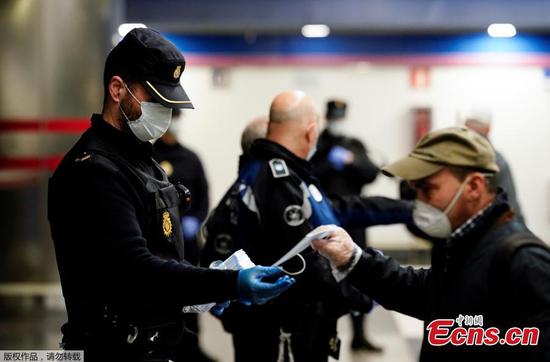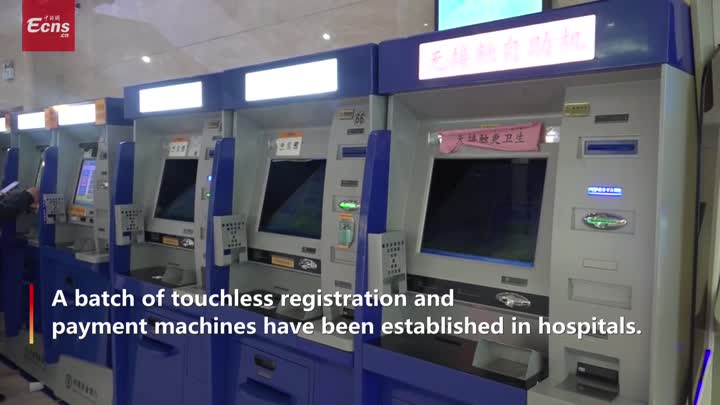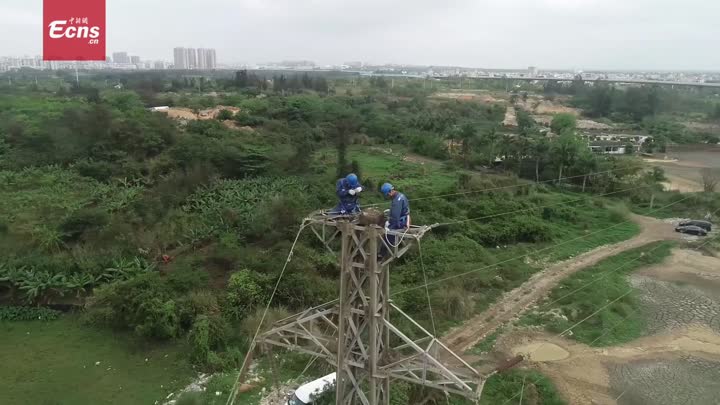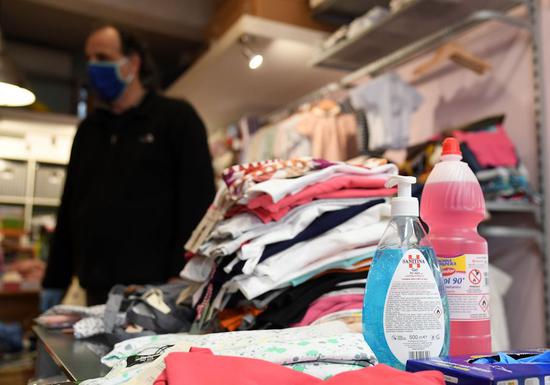
A shop selling children's products reopens in Rome, Italy, April 15, 2020. (Photo by Alberto Lingria/Xinhua)
The coronavirus pandemic has claimed 21,645 lives in locked-down Italy, bringing the total number of infections, fatalities and recoveries so far to 165,155, according to the latest data released by the country's Civil Protection Department on Wednesday.
The number of COVID-19 patients hospitalized showed a relevant drop, with 27,643 hospitalized, down by 368 compared with the previous day, including 3,079 in intensive care units (ICUs), down by 107. Meanwhile, 74,696, or about 71 percent, are isolated at home because they are asymptomatic or with light symptoms, Civil Protection Department Chief Angelo Borrelli told a televised press conference.
There were 578 new fatalities on a daily basis, Borrelli said, adding that active infections rose by 1,127 compared to Tuesday to a total of 105,418.
A total of 962 new recoveries were also registered over the past 24 hours, bringing the total recoveries to 38,092 since the pandemic broke out in the northern regions on Feb. 21.
The figures on Wednesday were up from a total of 162,488 cases on Tuesday, which comprised 104,291 active infections, 37,130 recoveries, and 21,067 fatalities.
Borrelli said private donations to a special bank account devoted to the COVID-19 emergency and opened by the Civil Protection Department have exceeded 125 million euros (136.4 million U.S. dollars).
Of these solidarity funds, over 31 million euros (33.8 million U.S. dollars) have been spent so far to purchase ventilators for ICUs and protective gear for medical staff.
Speaking at the same press conference, the World Health Organization (WHO) Assistant Director-General Ranieri Guerra explained the possible reopening of productive activities in Italy would require "a very precise risk assessment, taking into account not only the single activity but also the (related) supply chain and transports."
"From my point of view, the maximum level of safety for workers and all those carrying out production activities must include an assessment of their immune status," said Guerra, who is among the experts specifically counseling Italy's Health Minister Roberto Speranza in the coronavirus emergency.
"I believe this not only is due to the workers' health, but is a crucial factor for evaluating productivity recovery in the single company or production structure," he added.
Besides serological testing for immunity, the official recommended periodic swabs on workers, once productive activities are reopened.
"Serological testing will be needed to understand if there has been a contact (with the coronavirus), and whether the immunity exists," Guerra explained.
"Yet, monitoring the course of infection would also be needed, which means performing periodical swabs on those (workers) who have tested negative, in order to put them in a position of maximum safety."
"I believe this is a crucial condition for having adequate surveillance in the workplace," he stressed.
According to the latest official data, the regions most affected by the pandemic remained northern Lombardy (32,921 active infections), Emilia-Romagna (13,577), Piedmont (13,195), and Veneto (10,789), as well as central Tuscany (6,417).
So far, over 1.1 million swabs have been carried out, the Health Ministry stated. Enditem









